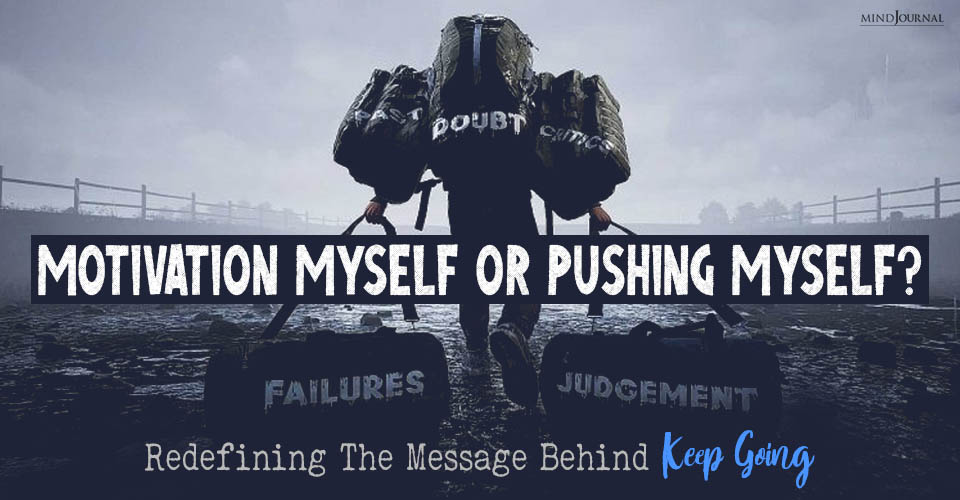Are you someone who thinks a lot and cares about how other people perceive you? Do you have an inherent need to please others, all because you want everyone to like you?
“Care about what other people think and you will always be their prisoner.” —Lao Tzu
People-pleasing, approval-seeking, need-to-be-liked syndrome—call it what you will—seeking self-worth through the approval of others is a fruitless endeavor and an exhausting way to go through life.
So why do we do it? Why do we allow what others think of us to have so much power over how we feel about ourselves? If it’s true that you can’t please all of the people all of the time, wouldn’t it make sense to stop trying?
Unfortunately, sense often isn’t driving our behavior. For social beings who crave love and belonging, wanting to be liked and caring about the effect we have on others is healthy and allows us to connect. However, where we get into trouble is when our self-worth is contingent upon whether we win someone’s approval or not.
“The need to feel ‘okay’, liked, or approved-of is rooted in the messages a person received about their inherent worthiness and belonging while growing up,” says clinical psychologist Erika Martinez, Psy.D. “Somewhere along the way, people with contingent self-worth learned that their worth came from others’ approval, not from within themselves.”
Rachel S. Heslin, author of Navigating Life: 8 Different Strategies to Guide Your Way, traces this need to be liked back to when we were children and were completely dependent on others to take care of us. “Small children are not just learning how to walk and communicate, they are also trying to learn how the world works…we learn about who we are and what is expected of us based on interactions with others.” Heslin goes on to say, “To a four-year-old, if Mommy or Daddy doesn’t like you, there is the danger that they will abandon you, and you will die. We need to understand that when we desperately want someone to approve of us, it’s being driven by that little kid part of us that is still terrified of abandonment and death.”
The reality is that what others think of us is none of our business.
“As you become more capable of providing yourself with the approval you seek,” says Heslin, “your need for external validation will start to dissipate, leaving you stronger, more confident, and yes, happier in your life.”
Read 9 Important Reminders For A People Pleaser and How To Finally Say ‘No’
Though far easier said than done, there are steps that can be taken to build self-worth from within and reduce the need to please.
1. Cultivate awareness.
“In order to change unhealthy approval-seeking behaviors, we have to become aware of them,” says psychotherapist Santiago Delboy, MBA, LCSW, S-PSB. “Sometimes they can be apparent, such as when we actively seek validation or avoid confrontation. Sometimes they can be subtler, for instance [when we] are very compliant, agreeable, or do not want to ‘rock the boat.’”
So, how do we recognize when we are engaging in these less apparent types of people-pleasing behaviors? Jenn Kennedy, LMFT suggests asking yourself the following questions. “Did you say yes when you really wanted to say no? Did you quiet your voice because it didn’t please or echo someone else who you deem important? Does it seem like you are overextending? If so,” she says, “try pushing back on these habits and see what comes of it.”
“Awareness also includes an evolving understanding of the experiences that led to the behavior in the first place,” says Delboy. “Those experiences left emotional wounds that we can’t heal if we don’t take a look at them.” He says those with an anxious attachment style may be more prone to unhealthy approval-seeking behaviors.
Working with a therapist to process these experiences can be enormously helpful in beginning the healing process.
2. Practice self-compassion.
As mental health professionals, one of the first principles we learn is to meet our clients where they are. This same principle should be applied to ourselves. Self-compassion, or self-love, involves accepting where you are in your life, and who you are—flaws and all. “Instead of being harsh with ourselves, it is very important to give ourselves the love, constancy, and security that we didn’t receive growing up,” says Delboy. “Through self-compassion, we can understand that even if people don’t like us, that is not a reflection of our value as a human being.”
An inextricable part of developing self-compassion is caring for one’s self. Kennedy describes self-care as the antidote to an excessive need for approval. “It is speaking up when wronged, acknowledging accomplishments to self, as well as tolerating the discomfort of being dismissed or criticized. It’s accepting that you aren’t for everyone, and that is okay.”
Part of self-care is putting ourselves before another—not in a selfish way, but in the way a mother must put the oxygen mask on herself first to be able to help her child. Without our own oxygen, we are no good to anyone else.
Through self-care, we cultivate self-esteem. Glenn R. Schiraldi, Ph.D., Lt. Colonel (USAR, Ret.), author of The Self-Esteem Workbook, Ten Simple Solutions for Building Self-Esteem and The Resilience Workbook, defines self-esteem as a realistic, appreciative opinion of oneself, and having inner security that is not shaken by adversity, including the fluctuating opinions of others. “The journey toward developing healthy self-esteem,” he says, “starts with the recognition that people are born with unconditional human worth that is independent of the way people treat us.”
Read Are You A People-Pleaser? How Trying To Please Others Too Much Will Harm You
3. Build a positive support network.
Who we choose to surround ourselves with can greatly impact our well-being and influence our sense of selves. This is especially true for those who struggle with low self-worth. “Since the need to be liked oftentimes stems from failures in our early relationships, it is important to develop healthy and reparative relationships,” says Delboy.
“These take time and require us to take the risk of opening up and being vulnerable. We might be afraid that by opening up we might be giving people more reasons not to like us.” Even if that risk is fair, he says, the reward is a nurturing relationship that can change us from within.
Martinez agrees and points out the importance of being with people who are supportive of us for who we are, not what we can do, have done, or who we know. This, she says, helps us start detangling our self-worth from external outcomes such as winning the approval of others.
4. Take a break from social media.
“An intense need to be liked typically links to someone feeling that the locus of control lies outside of them—that they need others approval to be acceptable.” Says Kennedy. ”This is reinforced daily as Facebook members give thumbs up, hearts, and smiling faces.”
As studies are showing us, each time we receive a “like” or other pseudo response of approval on social media, we experience a spike in dopamine. This causes us to keep chasing the next “high”, much like an addiction.
Just as we manufacture the illusion of perfection on our social media pages, we may find ourselves doing the same in the real world. Once we start conforming and contorting ourselves in the quest for approval, according to Kennedy we begin to question whether others will like us if they knew who we really were.
Read The Unwanted and Often Unavoidable Damages Social Media Has In Our Lives
5. Remember that most of the time it’s more about them than it is about you.
Barring some egregious behavior on our part, a great majority of the time, another’s dislike of us is more of a reflection on them. If we see something in another person that we don’t like about ourselves, we often project.
Projection is a defense that we all use to avoid facing the not-so-pretty parts of ourselves. It often explains what happens when someone meets us for the first time and immediately takes a dislike to us or makes a snap judgment without getting to know us. Those who have higher self-esteem and feel more secure with themselves tend to do this less.
As carefully as we may try to tiptoe through life in an effort not to offend, inevitably we will fail. While we do have control over what comes out of our mouths and what we throw others’ way, how it lands on them is not in our control. Each person interprets the world through their own unique lenses and life experiences.
What may turn off one person may attract another. It is our intention that matters. How they choose to receive it is on them.

6. Creating a life worth living.
Imagine how much time we lose each moment we squash our authentic selves in an effort to be liked.
If we base our inherent worth on the fleeting opinions of others, we cheat ourselves of the power with which we were born–the power to shape our experiences and embrace life and our brief time here with compassion—not only for others but also for ourselves—because ultimately, there is no difference.
Embrace the cliché and love yourself. It’s highly doubtful that you will regret it.
If you want to know more about letting go of the need to please, then check this video out below:
Written by Allison Abrams Originally Appeared In Huffpost











Leave a Reply